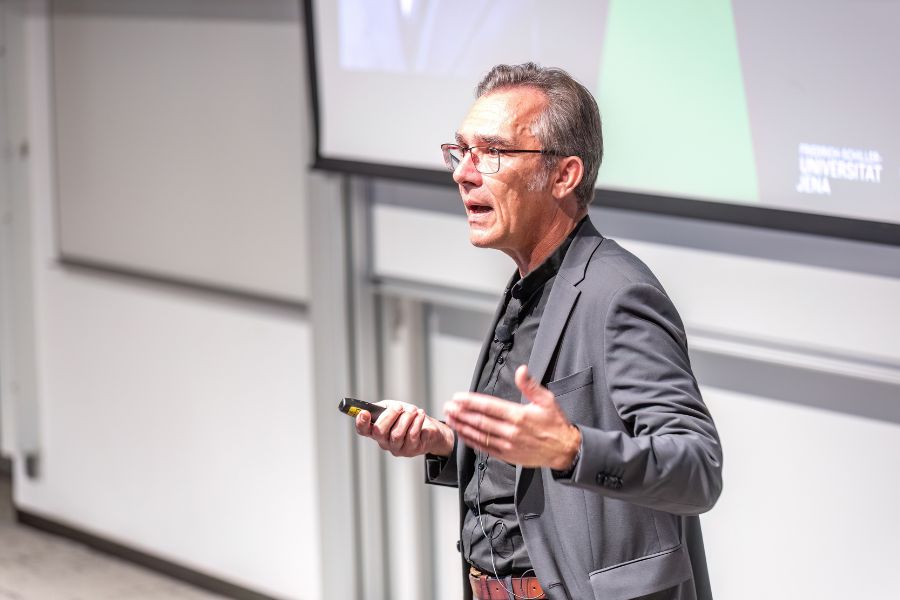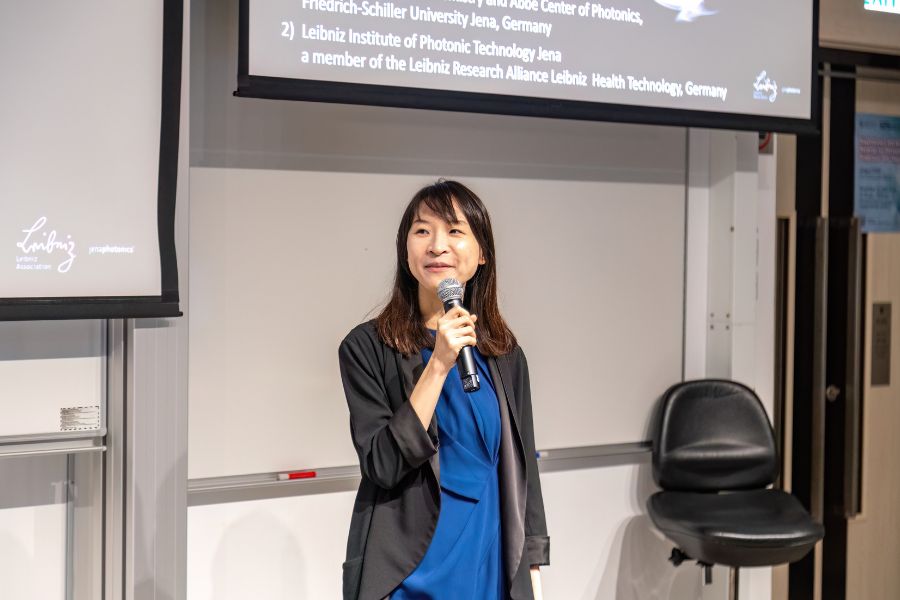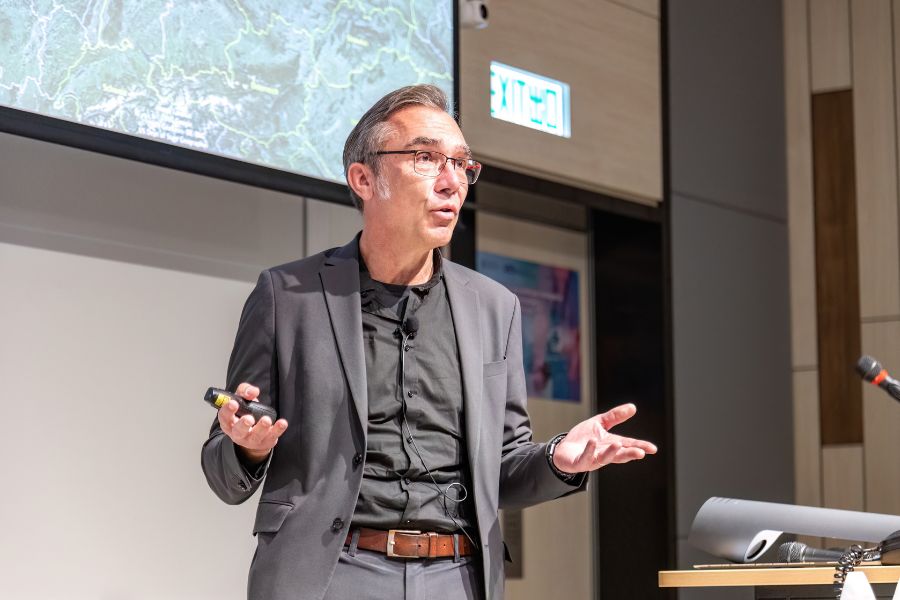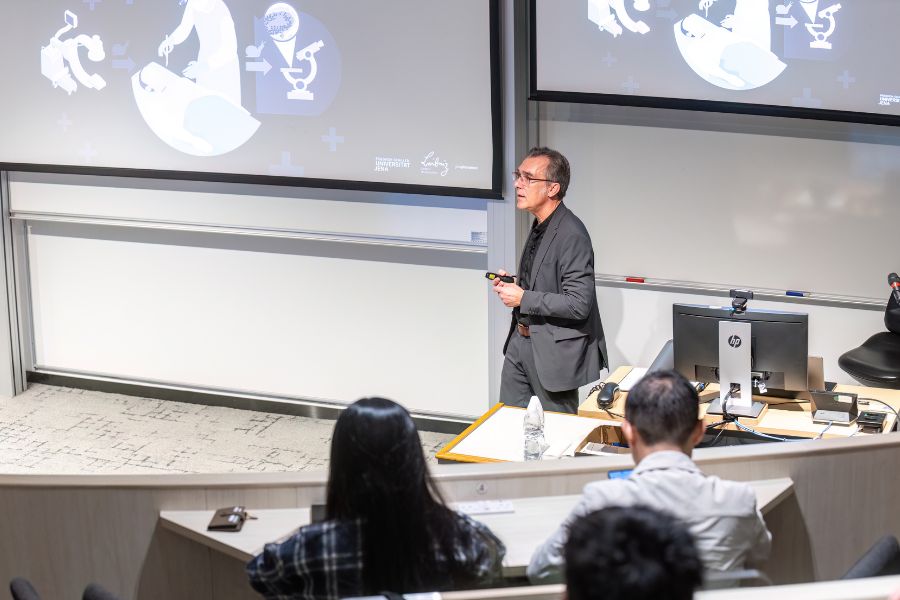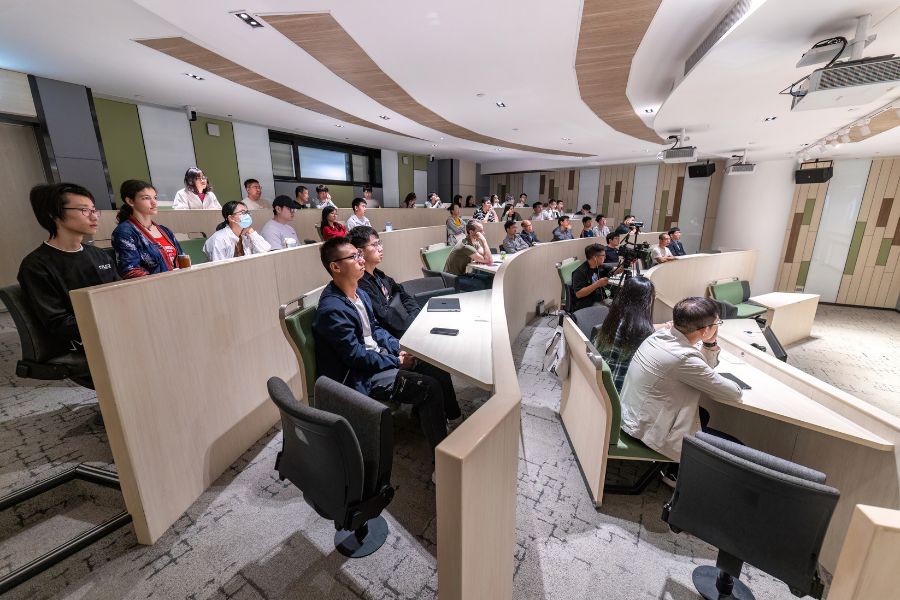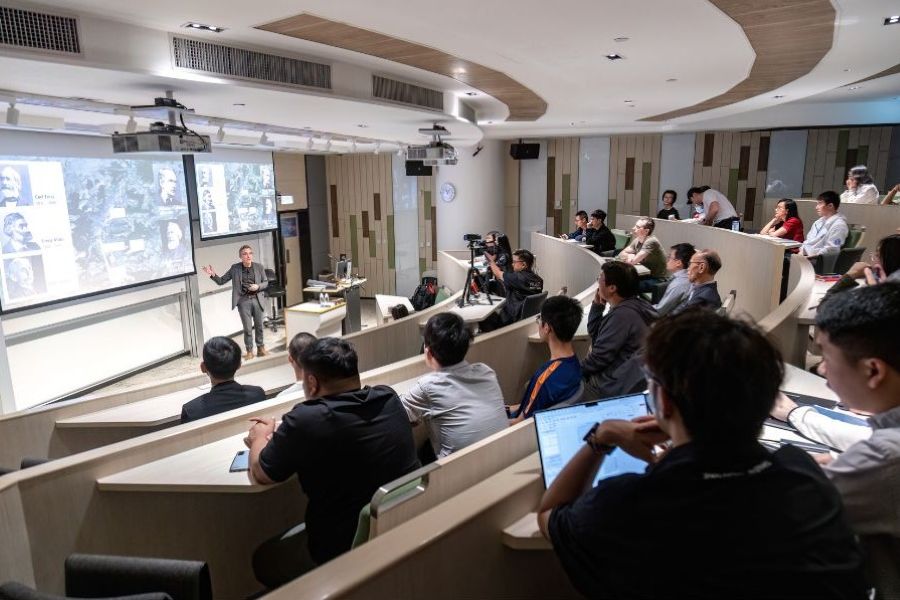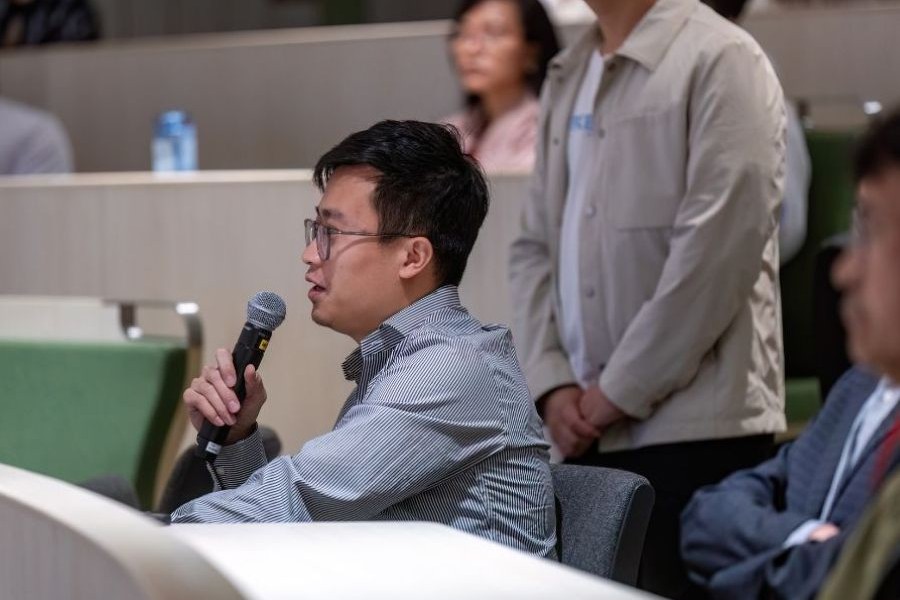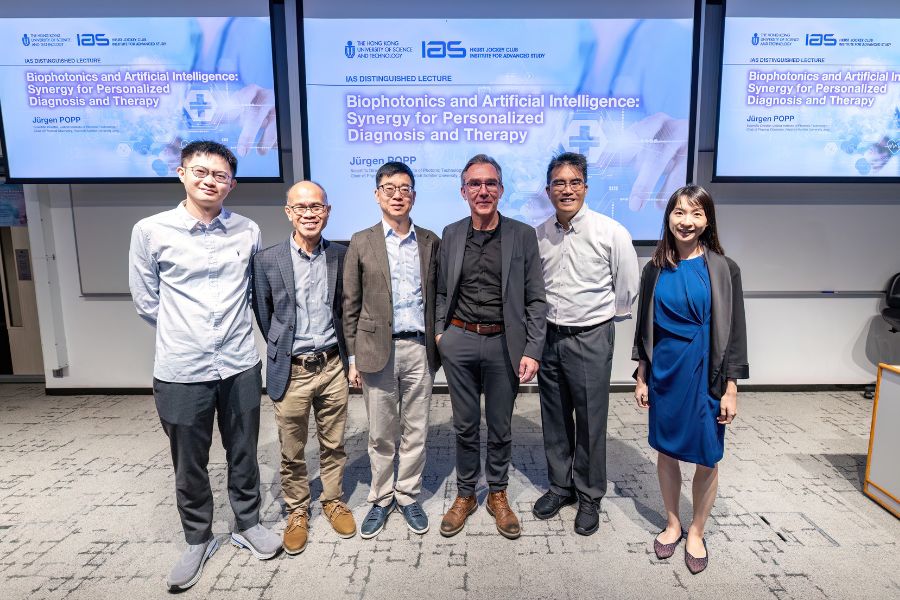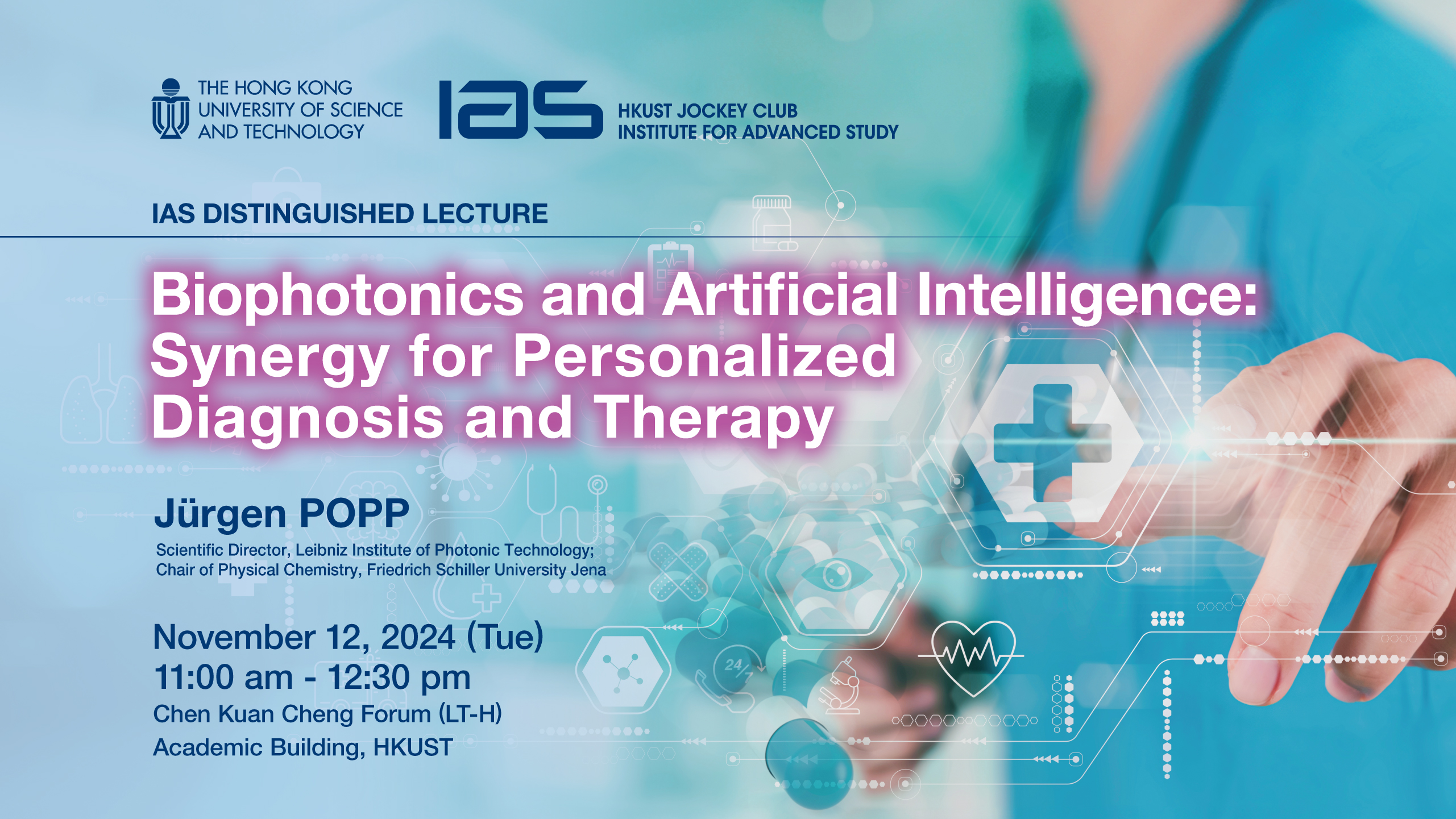Biophotonics and Artificial Intelligence: Synergy for Personalized Diagnosis and Therapy
Abstract
In recent years, the use of photonics, particularly in combination with the transformative capabilities of artificial intelligence (AI), for clinical diagnosis and therapy has expanded rapidly. Numerous proof-of-concept studies have demonstrated the enormous potential of photonics in medicine. However, the next major challenge is to translate these innovative approaches into routine clinical applications, a critical step that will define the future of medical diagnosis and treatment.
In this talk, the speaker will present his research team's recent efforts to advance spectroscopic methods, particularly Raman spectroscopy integrated with AI-driven spectral analysis, toward real-world clinical applications. They focus on two main application areas: real-time intraoperative histopathological diagnosis of tumors, and accurate on-site diagnosis and treatment of infectious diseases. In both scenarios, time is a critical factor: the sooner an infectious agent is identified, or a tumor is completely removed, the better the patient's prognosis. Their approach spans the entire diagnostic process, from sample collection to the delivery of accurate diagnostic results and promises to reduce the critical time needed to promote personalized therapy by tailoring treatments based on real-time, patient-specific data. The combination of rapid, AI-enhanced spectroscopic analysis and immediate clinical decision-making paves the way for individualized treatment protocols. By reducing diagnostic time, healthcare professionals can make faster, more informed decisions and tailor treatments to each patient's unique molecular and pathological profile. To facilitate this translation into clinical practice, they are introducing translational infrastructure to bridge the gap from research to product, ensuring that these advances reach patients in a timely manner. This step is critical to overcoming the "valley of death" in the development pipeline and bringing innovative, patient-centered therapies into routine use.
About the Speaker
Prof. Jürgen POPP studied chemistry at the Julius Maximilian University of Würzburg and the University of Erlangen–Nuremberg. After obtaining his PhD in Chemistry, he joined Yale University for postdoctoral work. He subsequently returned to the University of Würzburg where he finished his habilitation in 2002. He joined the Friedrich Schiller University Jena in 2002 and is currently a Chair of Physical Chemistry. He is also the Scientific Director of the Leibniz Institute of Photonic Technology.
Prof. Popp’s core research focus is biophotonics, i.e., the development and implementation of innovative optical/photonic methods and tools for multiscale spectroscopy and multimodal imaging together with particle- and chip-based molecular point-of-care concepts for biomedical diagnostics. In this context, these biophotonic approaches are utilized and developed according to the needs of pathology, oncology, and infection/sepsis. He is the Editor-in-Chief and founding editor of Journal of Biophotonics and Translational Biophotonics.
Prof. Popp was awarded with the Pittsburgh Spectroscopy Award in 2016, the third prize of the Berthold Leibinger Innovationspreis in 2018, the Ralf-Dahrendorf Prize for the European Research Area in 2019, and the Charles Mann Award for Applied Raman Spectroscopy of the Federation of Analytical Chemistry and Spectroscopy Societies in 2023. He was elected a Fellow of the Society for Applied Spectroscopy (2009), the International Society for Optical Engineering (2012) and the Royal Society of Chemistry (2021). In 2019, he was appointed a member of acatech – German National Academy of Science and Engineering.
For Attendees' Attention
Seating is on a first come, first served basis.

